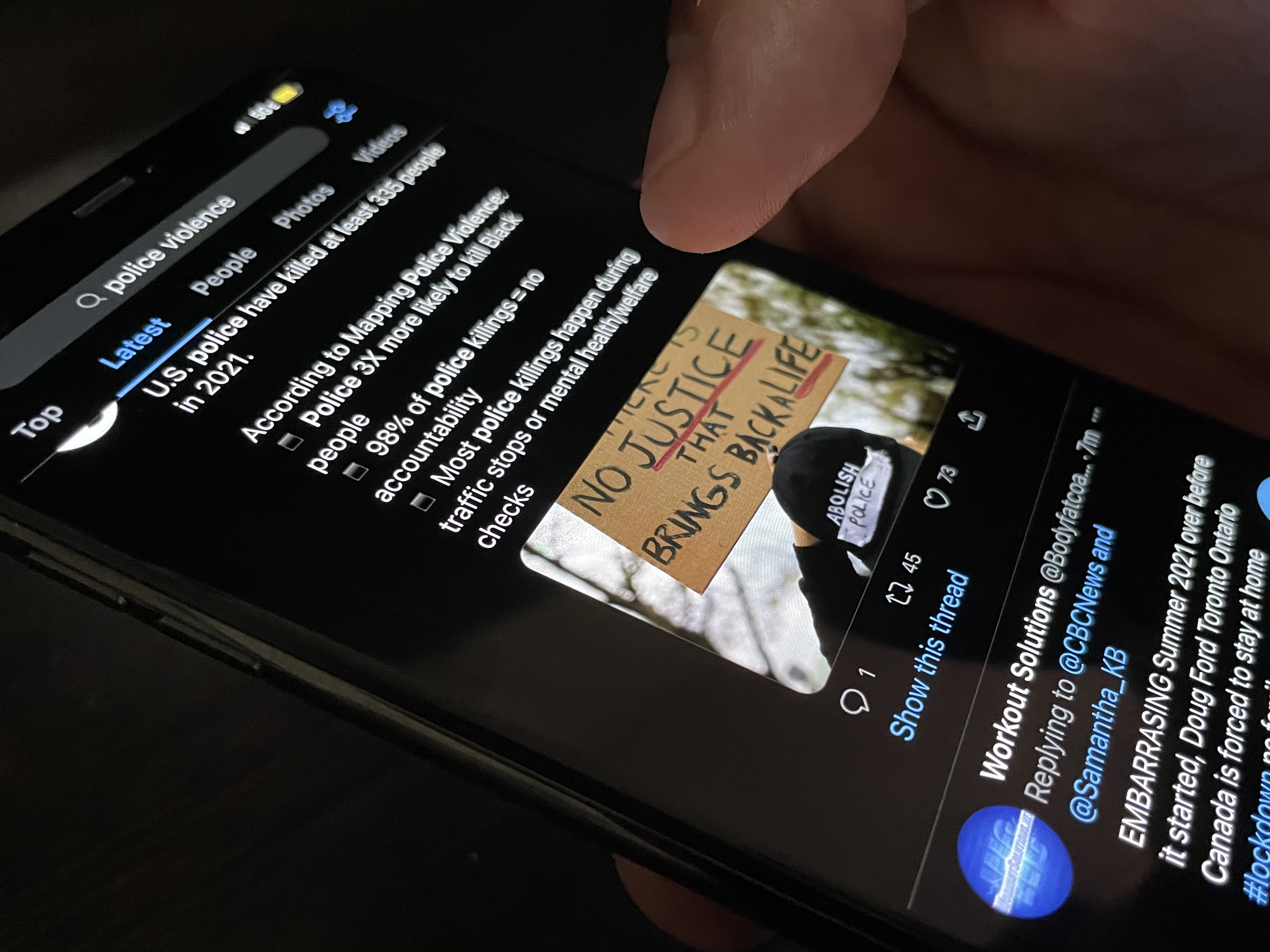By: Sydney Brooks
FAYETTEVILLE, Ark. (UATV) – Throughout the past few years, events involving police violence have swept the country.
Most recently following the George Floyd Case, people across the country shared their thoughts and emotions on the verdict of Derek Chauvin. Chauvin is a former Minneapolis police offer who was convicted of murdering George Floyd. He was found guilty on three charges including second-degree unintentional murder, third-degree murder, and second-degree manslaughter.
Media outlets featured videos of Floyd’s family, pictures of people awaiting the verdict, Tweets on the case and more.
Although for many this was a celebratory moment, some felt this was only a small step in the right direction.
In 2021 alone, police have killed at least 355 people. Of this number 28% were Black people.
Witnessing events on social media has taken an emotional toll on many people of color, including students here at the University of Arkansas.
Seeing and hearing of incidents so frequently is something Apparel Merchandising and Product Development Major Patience Billingsley said can be overwhelming.
“It’s stressful and draining on you, just seeing the violence all the time is like, ok I know it needs to get out, but at the same time it’s draining for your mental health,” she said.
Many Students have even been forced to delete or use social media accounts less frequently to avoid seeing such things so often.
“It’s a reason that I don’t use social media as much as I used to. I was telling my mom after the Chauvin verdict was announced, that I don’t pay attention to social media because stuff like that triggers me,” said Kinesiology Major Benjamin Dismuke.
In a study done in Minneapolis where the death of both George Floyd and Daunte Wright occurred, experts found that in areas near or in the same state where an individual was killed by the police, that students’ grade point averages decreased after the event.
But as more cases come up, students all across the U.S. are also finding effects within their academic achievement.
For Social Work Major Jessica Higgins, this semester has been difficult to navigate.
“I just have not done good, in any way shape or form if I’m being honest,” said Higgins. “Between police brutality and people being killed, at least once a week I’m hearing about someone I’ve known from elementary, middle, or highschool getting killed where I’m from.”
Many say these events have changed the perspective they have of police officers but for Higgins, this hits right at home.
She’s the daughter of the first black Police Chief of Pulaski County in Little Rock, Arkansas. Amongst the negative encounters that many have with the police she feels strongly that good police exist but that there is still a lot of work to be done as a whole.
“I’ve met many good ones, and my Dad is one. But there needs to be better protocols on how officers are trained.”
On campus, CAPS Counselor Patricia Morency offers her assistance to students of color on how to cope with race-related stress and offers advice to students who have friends of color and want to be an ally.
“Don’t underestimate the power you have to make change, ” said Morency. “Student involvement has been instrumental in starting major movements throughout history.”
She encourages students to join a support network with like-minded people that you can share your experiences and feelings with.
Morency advises students to continue having a positive identity and strong sense of self.


